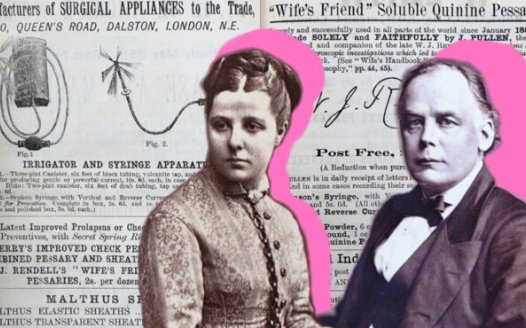An unbridgeable gulf separates Norway and the Holy See on women’s rights at the United Nations
Posted: Wed, 21st Mar 2012
Two very contrasting statements about abortion and contraception were made this week at the 56th session of the Commission on the Status of Women at the United Nations. One from Norway and one from the "Holy See".
The Norwegian Ambassador said:
"The term – "Moral Hazard" – is often used when someone takes a risky decision – because they know that someone else will pay if the decision is wrong.
"I am sad to say, this is precisely what we have witnessed at this year's meeting of the Commission on the Status of Women: In statements and in speeches – and in negotiations - we have seen how moral values have been evoked to deprive women of their Human Rights, their opportunities – and ultimately, for some – their life! This is the real Moral Hazard of our time!
"Fellow delegates, Norway fully respects and protects religious freedom and cultural diversity. But we cannot accept that religious, cultural and certain so-called moral arguments are being used to block decisions and avoid obligations we all know would give millions of women freedom and save hundreds of thousands of lives every year.
"All countries and cultures have their traditions and hold them dear. But in 2012, with the knowledge we now have with regard to women's rights, opportunities and health, we also know that certain perspectives and practices are harmful –and dangerous – to women. This means we have to compromise. Many will have to let go of some traditional convictions, also when they are based on religious belief or culture. After all, every country, every culture and every society undergo permanent change. That's what's called – development.
"Norway will therefore continue to insist that the United Nations, including the Commission on the Status of Women, should take rational decisions for a better world for all – including all women".
The Holy See's contribution to the debate was this:
"With regard to the present resolution, my delegation stresses that the elimination of preventable maternal mortality and morbidity is directly linked to the provision of adequate healthcare. What are needed especially are skilled birth attendants, prenatal and postnatal care for mother and child, and emergency obstetric care.
"My delegation notes with grave concern various agendas which were being advanced during the negotiations regarding so-called "reproductive rights," a term on which no international consensus exists. My delegation laments the attempt by the main sponsor of the resolution to de-link the term from the Programme of Action of the International Conference on Population and Development (ICPD) on which many States have reservations. By their legislation, numerous States have and remain committed to opposing abortion and thus to upholding the rights of the unborn. It is an incontrovertible fact that abortion kills the unborn child and causes harm to the mother. For this reason there is no such thing as a "safe" abortion.
"Language contained with the ICPD Programme of Action affirms respect for religious and ethical values (cf., Chapter II, Principles). Regrettably, the main sponsor failed to allow a paragraph to affirm these principles which respect conscience and the freedom of religion. Likewise, the attempt to change language contained within the Programme of Action regarding family planning—that is, family planning which is acceptable [cf., 7.14 (c) and 7.5 (a)]—amounts to a wholesale attempt at rewriting history to advance an agenda disrespectful of marriage and the family.
"It is the sacred and solemn responsibility of parents to care for their children and no one—including the state—has a right to advance an agenda which does not respect the natural moral law. The attempt on the part of the main sponsor of the text to not recognize the prior and primary responsibilities, rights, and duties of parents regarding their children, is disrespectful of the nature of marriage and the family and undermines international law (cf., Universal Declaration of Human Rights, Article 26,3; International Covenant on Civil and Political Rights, Article 18,4; Convention on the Rights of the Child, Articles 5 and 18,1). The advancement of an agenda which promotes "sex education" and artificial contraception to children, and completely disregards their parent's involvement, is antithetical to the role of the state which has the responsibility to promote the common good of the family and society.
"It is tragic that the present resolution is clouded by various attempts to advance the aforementioned agendas which are contrary to respect for human life. An authentic rights-based approach to eliminating preventable maternal mortality and morbidity respects fully all human persons and thus all women, and is an approach which necessarily includes, inter alia, respect for the life of all persons, from conception to natural death, freedom of conscience, full respect for religious liberty, and the promotion of the common good. While the present resolution addresses some of the concerns facing pregnant mothers, my delegation hopes that in the future these concerns will be fully addressed, so that mothers and fathers and their children will truly be affirmed in keeping with their dignity.
"In closing, Madame Chairperson, my delegation reaffirms all of the Holy See's reservations on past occasions with regard to the meaning of the term "sexual and reproductive health" and "reproductive rights" which should not include abortion or abortion services. Moreover, the Holy See in no way endorses contraception or the use of condoms, either as a family planning measure or as part of HIV/AIDS prevention programmes or classes/programmes of education in sexuality. Regarding the term "gender" and its many uses in the text, my delegation once again reaffirms the use of "gender" as referring to "women and men," or male and female, according to its ordinarily agreed usage before, during and after negotiation of the Beijing Declaration and Platform for Action".
It should be pointed out that there is no scientific evidence that all abortion is harmful to women as the Holy See claims and that their 'respect for human life' does not appear to extend to women, just to foetuses in this case. By 'natural moral law', the Vatican is referring only to Christian law, not to any evolved social behaviour.







